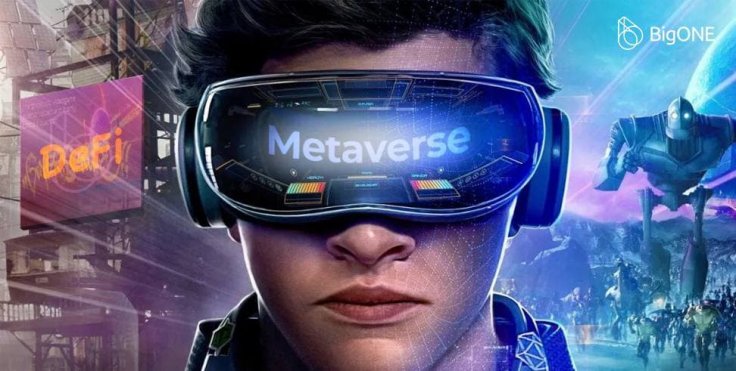
The growth of NFTs in the last year has been unprecedented, with new real-world applications appearing almost every minute it feels like. The response to, and transaction volume on NFTs in NFT marketplaces, has been nothing short of spectacular. NFTs have been integrated into many significant industries over the last two years, including sports, gaming, arts, and music.
NBA Topshot, the NFT marketplace for the US National Basketball Association (NBA), the world's largest basketball league, is a striking one example.
NFTs have taken the world by storm for such a relatively new technology. Now many industry leaders in the digital space believe we may have finally found the missing piece to creating a fully functional metaverse, thanks to NFTs. But to comprehend NFT technology's role in this concept of a functional metaverse, we must first better understand what NFTs are and their significance in a metaverse.
The Connection Between NFTs and the Metaverse
Clearly the development of a fully functional metaverse has the potential to fundamentally alter how people interact with the digital world. A collective virtual experience would reimagine the creative industry and open new doors for creators, gamers, and artists.
The metaverse would become a portal to digital experiences, potentially becoming its trillion-dollar industry. The possibilities with a metaverse are limitless, as evidenced by the gaming industry. Fortnite players entered the metaverse at last year's virtual Travis Scott concert, which allowed 12 million people to experience a virtual concert all within a self-contained digital world.
In all this it's worth remembering that Fortnite started off as a regular zombie game, but due to its popularity morphed into something now marked as part of the metaverse. And a lot of this was driven by player demand, as more and more people got involved in Fortnite Battle Royale, Epic the company behind Fortnite added social features such as costumes, voice chatting and dance parties.
For Epic it's also a battle against the established tech giants, itself reflective of its court battles with Apple. Interviewed in The New York Times, Tim Sweeney, the chief executive of Epic, admitted that defining the metaverse was difficult, he said, but he knew what it was not: "The metaverse is not an App Store with a catalog of titles," Mr. Sweeney said. "In the metaverse, you and your friends and your appearance and cosmetics can go from place to place and have different experiences while remaining connected to each other socially." Could it be possible one day to have a tunnel from Roblox to Fortnite and other games, connecting them all in some sort of futuristic world? Mr. Sweeney said yes.
Matthew Ball, a venture capitalist who wrote a key article about the metaverse in early 2020, sees the metaverse not as a virtual world or a space, but rather "a sort of successor state to the mobile internet" - a framework for an extremely connected life. Indeed, despite the novelty factor of the 'metaverse' it's a concept that, as he explains, has been decades in the making: "Since the late 1970s and early 1980s, many of those in the technology community have imagined a future state of, if not quasi-successor to, the Internet – called the 'Metaverse'..it would revolutionize not just the digital world, but also much of the physical one, as well as all the services and platforms atop them, how they work, and what they sell." And it's that last point, the pivotal role of decentralized finance (DeFi) in the metaverse economy, that is most intriguing.
Because despite the frictionless use of crypto, with low fees and decentralized P2P structures, the reality is that the commercial first movers in the metaverse space from gaming have their own proprietary currencies. What makes DeFi so attractive to the metaverse community is that it can be automated, without any centralized intervention. It also means that DeFi has long term attractions, allowing game developers and players to invest time and money knowing the underlying blockchain platform won't change without community consensus. "Today, only a tiny fraction of online users and gamers even have a crypto wallet, and almost no brands and games issue NFTs. But irrespective of multi-month dips in the blockchain/crypto/NFT economy, we see more of these groups embrace blockchain-based experiences each month. This produces a virtual cycle that drives more users to register a wallet, mint an NFT, or integrate crypto assets", concludes Ball. The future of metaverse as an interconnected world is bound up with DeFi it seems.
Cryptocurrencies have already been successfully integrated recently into virtual worlds created by companies such as Decentraland and Sandbox. For example, users in Decentraland can purchase virtual real estate such as theme parks and monetize them using cryptocurrencies. Coca Cola plans to launch its own NFTs on the platform, including a 'wearable' jacket for avatars in the Decentraland metaverse. "We are excited to share our first NFTs with the metaverse where new friendships are being forged in new ways in new worlds," said a Coca Cola's Selman Careaga, President, Global Coca-Cola Trademark. While the involvement of global consumer brands rather than video gaming is not universally welcomed in the metaverse community, it's also testament to its rapid growth, supported by NFTs, supported by wider societal trends from the expansion of gaming to the accelerated shift to online work and play driven by the COVID-19 pandemic.
Closing Thoughts
The development of the metaverse concept may still be in its early stages, but the example of Facebook's backing shows it's here to stay, as people's activities and technologies converge online. To quote Zuckerberg: "I think that this is a persistent, synchronous environment where we can be together, which I think is probably going to resemble some kind of a hybrid between the social platforms that we see today, but an environment where you're embodied in it."
Clearly DeFi needs to play a key role in the development of the metaverse, to avoid two versions emerging: one dominated by the likes of Facebook, and the other built on open interoperable platforms. Together with NFTs the role of DeFi is to provide the essential infrastructure for the vision of an open metaverse which liberates us to explore our online identities in both work and play. While we do not yet know what it will look like or say when a metaverse is finally created, the key role of cryptocurrencies and NFTs to make it a reality is already apparent. With the combined involvement of tech giants, the advancement of cryptocurrencies, and the NFT sector, it appears to be a matter of when, not if, the metaverse will become mainstream.
"I am hoping to see metaverseFI going mainstream." #anndylian
Author: Anndy Lian
Anndy Lian is a business strategist with over 15 years of experience in Asia. Anndy has worked in various industries for local, international, and publicly traded companies. His recent foray into the blockchain scene has seen him manage some of Asia's most prominent blockchain firms. He believes that blockchain will transform traditional finance. He is currently Chairman of BigOne Exchange and Chief Digital Advisor at the Mongolian Productivity Organisation.









